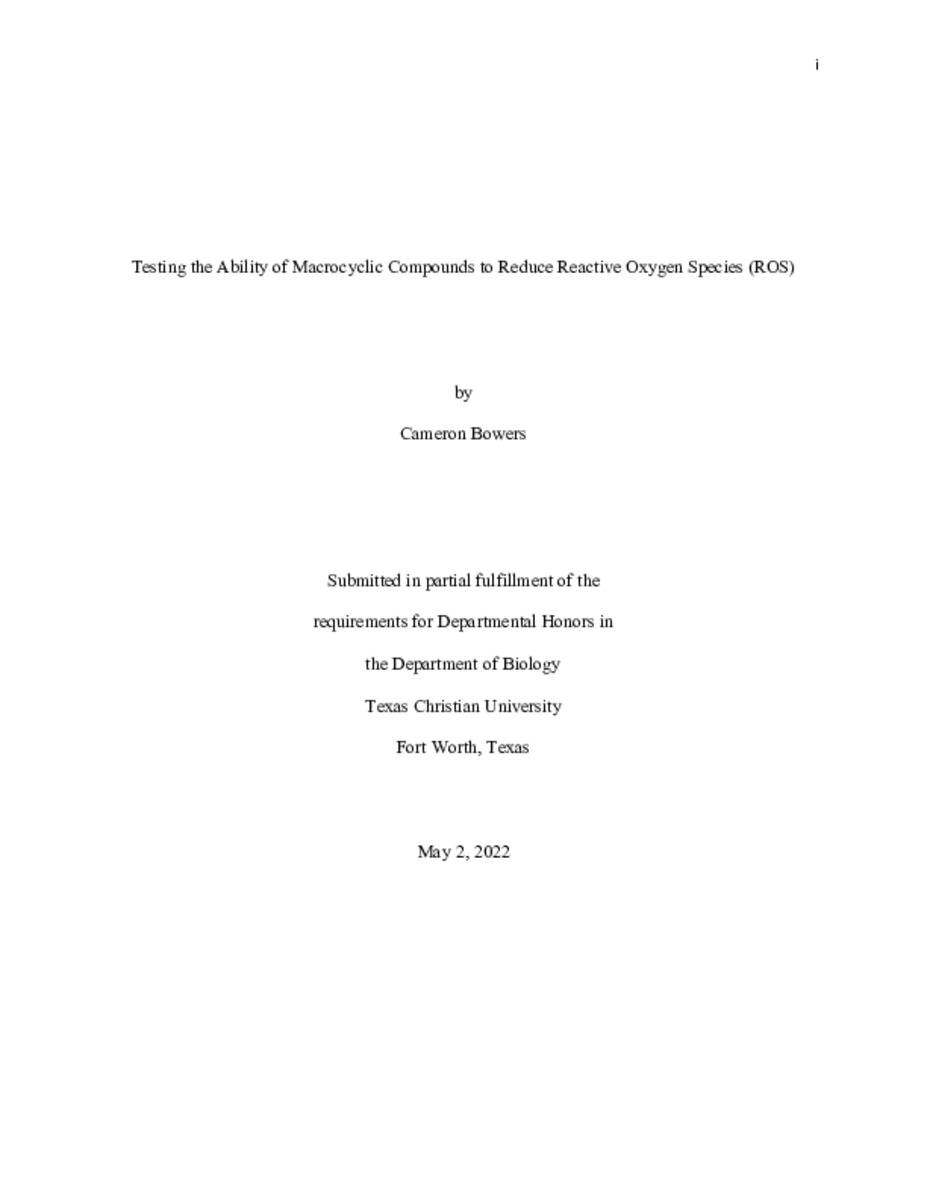Testing the Ability of Macrocyclic Compounds to Reduce Reactive Oxygen Species (ROS)Show full item record
| Title | Testing the Ability of Macrocyclic Compounds to Reduce Reactive Oxygen Species (ROS) |
|---|---|
| Author | Bowers, Cameron |
| Date | 2022 |
| Abstract | In the pathogenesis of neurodegenerative inflammatory diseases, such as Alzheimer's disease, there is an abnormal buildup of redox metal ions that associate with b-amyloid plaques and convert oxygen into oxygen radicals. These radicals are highly reactive with cellular components and lead to oxidative stress that induces damage and death of neuronal cells which is associated with the cognitive decline of Alzheimer's disease. Bifunctional macrocylic compounds with antioxidant properties are a promising potential therapeutic to reduce levels of reactive oxygen species (ROS) and increase neuronal cell survival via the ability to chelate dysregulated metal ions and radical scavenging. In this project, novel macrocylic compounds were tested for their efficacy in reducing intracellular H2O2-induced ROS and H2O2-induced cytotoxicity. Intracellular ROS levels and cell survival were quantified in FRDA and BV-2 cells using the DCFH-DA and MTT cytotoxicity assays. |
| Link | https://repository.tcu.edu/handle/116099117/54251 |
| Department | Biology |
| Advisor | Akkaraju, Giridhar |
| Additional Date(s) | 5/19/2022 |
Files in this item
This item appears in the following Collection(s)
- Undergraduate Honors Papers [1463]
© TCU Library 2015 | Contact Special Collections |
HTML Sitemap



